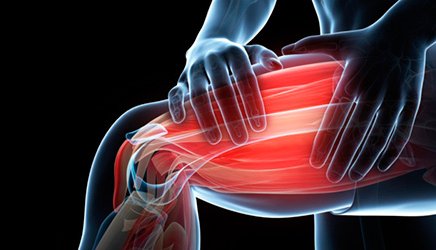Pain is one of the most feared and challenging aspects of cancer. Whether it’s from the tumor itself, treatment side effects, or nerve damage, cancer-related pain can be both physically and emotionally draining. At the Neurology and Pain Management Clinic (NPMC) in Delhi, Dr. Gautam Arora, an expert in pain medicine and neurology, offers a compassionate and holistic approach to managing cancer pain. The goal is simple: to improve quality of life, restore comfort, and empower patients to live with dignity and control.
Here are five expert-backed tips to help manage cancer pain effectively.
1. Understand the Nature of Your Pain
The first step in managing cancer pain is understanding its cause, type, and intensity. Cancer pain can be:
-
Nociceptive pain, caused by tissue damage or inflammation
-
Neuropathic pain, resulting from nerve damage (due to tumors pressing on nerves or side effects of chemotherapy)
-
Breakthrough pain, which is sudden and intense, occurring despite ongoing pain medication
Describing your pain accurately to your doctor helps in choosing the right treatment. Is the pain dull or sharp? Constant or intermittent? Localized or radiating? Each answer helps in tailoring a pain management plan just for you.
At NPMC, Dr. Gautam Arora uses a multi-dimensional pain assessment to understand both physical and psychological factors affecting your pain perception.
2. Use Medications Wisely and As Prescribed
Pain medications, when used appropriately, can significantly enhance quality of life. These may include:
-
Non-opioid pain relievers like acetaminophen or NSAIDs for mild to moderate pain
-
Opioids, such as morphine or fentanyl, for more severe pain
-
Adjuvant medications like antidepressants, anticonvulsants, or corticosteroids, which are especially effective for nerve pain
Some patients hesitate to take opioids due to fear of addiction. However, when supervised by a specialist like Dr. Arora, opioids can be safe and effective. The focus is on the right dose, right timing, and regular monitoring.
Equally important is managing side effects such as constipation, nausea, or drowsiness with additional supportive care.
3. Explore Interventional Pain Management Techniques
When medications alone don’t offer sufficient relief or cause intolerable side effects, interventional treatments can be game-changers. These may include:
-
Nerve blocks, which involve injecting anesthetic near specific nerves to stop pain signals
-
Spinal drug delivery systems, such as intrathecal pumps that deliver pain medication directly into the spinal fluid
-
Neurolysis, where alcohol or phenol is used to intentionally damage nerves transmitting chronic cancer pain
-
Epidural or celiac plexus blocks, especially useful for abdominal or pelvic cancers
These procedures, performed with imaging guidance at NPMC, provide targeted relief with fewer systemic side effects than oral medications.
4. Integrate Supportive Therapies into Your Routine
Pain doesn’t exist in isolation. Anxiety, depression, fatigue, and poor sleep often worsen the experience of pain. Integrative therapies can complement medical treatments to address these aspects. Consider:
-
Physical therapy, to reduce stiffness, improve movement, and build strength
-
Mind-body practices, such as meditation, guided imagery, and breathing techniques, which reduce stress and promote relaxation
-
Counseling or psychotherapy, to process emotional challenges associated with cancer
-
Nutritional support, since deficiencies can contribute to fatigue and discomfort
At NPMC, Dr. Arora supports a comprehensive, patient-centered approach that includes mental, emotional, and physical wellness strategies.
5. Communicate Openly and Re-Evaluate Often
Pain management is not a one-time fix. Your body and disease change over time—and so should your treatment plan. That’s why ongoing communication with your care team is essential.
Don’t hesitate to speak up if:
-
Your pain is not improving
-
Side effects from medications are affecting your life
-
You experience new symptoms
-
You need emotional or psychological support
Dr. Arora emphasizes regular follow-ups to adjust treatments, reassess needs, and ensure that each patient’s care remains aligned with their goals.
Family involvement is also encouraged. Caregivers can help monitor symptoms, manage medications, and provide emotional support, which is vital during the cancer journey.
A Final Word from Dr. Gautam Arora
“Pain should never be accepted as an inevitable part of cancer,” says Dr. Arora. “With today’s advanced treatments, no patient should suffer needlessly. My mission is to restore comfort, dignity, and strength—so that each patient can focus on living, not just surviving.”
At NPMC, every treatment plan is tailored to the individual, using cutting-edge medical therapies alongside compassionate, holistic care.
When to Seek Help
If you or a loved one is battling cancer and struggling with pain that disrupts sleep, mobility, or emotional well-being, it’s time to consult a specialist. The sooner you seek help, the more effective your pain control options will be.
Reach out to Dr. Gautam Arora at Neurology and Pain Management Clinic (NPMC), Delhi, for expert pain care that puts your quality of life first.



